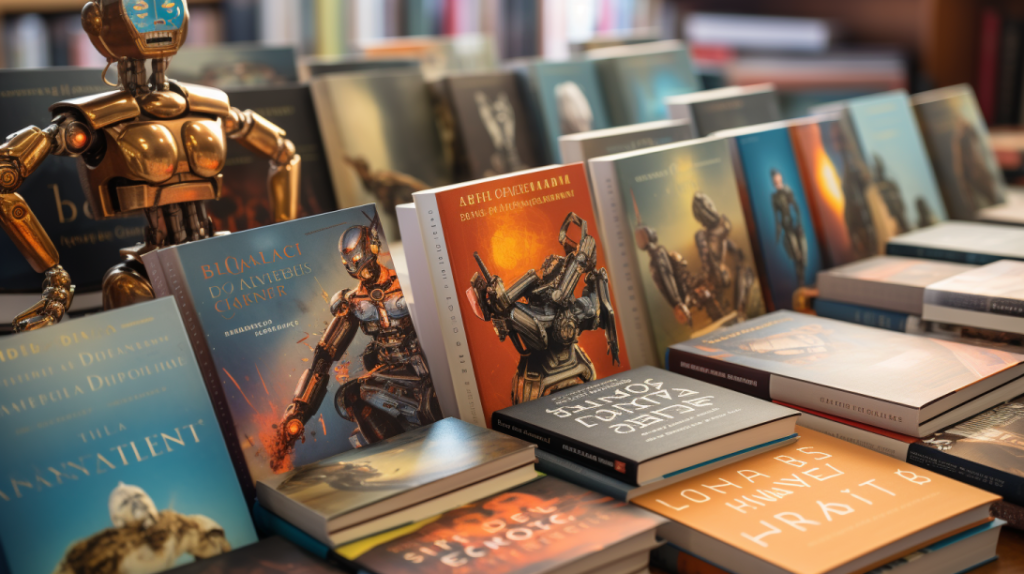Photo was created by Webthat using MidJourney
In the age of AI-driven advancements, technology’s limitations are becoming increasingly evident. While artificial intelligence can write and create, it struggles to replicate the literary magic that authors like Jennifer Egan, Emily St. John Mandel, and David Foster Wallace bring to their work. The same goes for other creative domains like music, where Taylor Swift and Kendrick Lamar reign supreme. However, AI’s potential is far from exhausted; it’s only just scratching the surface.
The Quest for Excellence: AI’s Impact on Creative Arts
With AI demonstrating its prowess in conquering domains once deemed impervious to automation, questions arise about its capabilities in the creative arts. Can AI-generated content truly possess brilliance? This inquiry gains significance in light of recent developments—particularly, the emergence of AI-generated book reviewers.
Related Reading: Artificial Intelligence in Education: What Parent’s Say?
Unveiling the AI Book Reviewers
The buzz around “AI book reviewers” has caught the attention of literary enthusiasts. A press release boasts of the “first book to ever be reviewed by AI avatars.” Curiosity piqued, readers wonder if AI can indeed deliver penetrating and illuminating reviews akin to those crafted by human critics.
However, the reality falls short of the hype. Delving deeper, it turns out that the proclaimed “book reviews” are not what one might expect. A PR firm introduced an AI gimmick to review a dystopian novel titled “The Cloud.” This gimmick involved AI-generated characters—a rogue android, a time traveler, and the like—offering assessments of the book.
Shattering Illusions: The Reality of AI-Generated Reviews
While the concept seems promising, a closer look reveals its limitations. The AI-generated “book reviews,” spanning just a few sentences, draw from the book’s jacket copy and Amazon reviews. Strikingly, the AI avatars lack access to the actual text of the book due to “copyright reasons.” Such reviews fail to capture the essence of genuine critique, as they overlook characters, themes, and the quality of prose.
The question then arises: Can AI-generated content genuinely replace human-authored reviews? The answer isn’t definitive. While most authors prefer human insights, AI-generated content holds appeal for post-review content requirements, such as social media promotions.
Related Reading: Google’s DeepMind Explores Novel AI Life Coach
The Prospects of AI-Generated Book Reviews
Despite the limitations, this experience prompts speculation about the future of AI-generated book reviews. To explore the possibilities, a renowned AI model, ChatGPT, is enlisted to review the book “Hackers.” The review, albeit devoid of opinions or emotions due to its AI nature, delves into the book’s significance in computer history.
AI’s Potential: A New Era of Critique?
The question lingers: Can AI ever replicate the fresh and perceptive insights offered by elite human reviewers? While AI’s current abilities fall short of this mark, future systems might overcome this hurdle. Just as AI can master foreign languages or coding, it could eventually be trained to identify exemplary writing through an extensive database of literary works.
Related Reading: China’s New Generative AI Rules Emphasize Public Products and Supportive Approach
The Essence of Authentic Critique
However, a fundamental aspect eludes AI’s grasp—the deeply personal experience of reading that drives human reviewers. The echoes of personal experiences, triggered thoughts, and emotional connections that enrich human analysis remain beyond AI’s reach. The act of reading is intrinsically tied to human life, memories, and perspectives that shape interpretations.
While AI-generated book reviews hold promise for certain post-review applications, they fall short of capturing the essence of human critique. The marriage of technology and creativity is an ongoing journey, marked by advancements and the acknowledgment of irreplaceable human perspectives in the realm of arts and literature.

